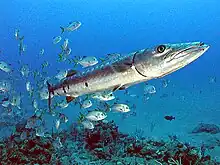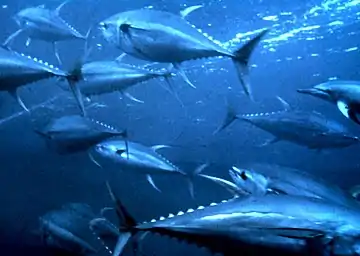Adam Soliman
Adam Soliman is the director of The Fisheries Law Centre. He is a researcher focused on legal and economic issues in Fisheries. He teaches fisheries law in several countries and advocates for further access to justice in small-scale fisheries. He researches and conducts analysis to issues in fisheries management with special focus on small-scale fisheries. He specializes in fisheries management scheme and property rights particularly in catch shares and other management schemes.[1]
He started his career in the agribusiness sector, working for a family operation in the Middle East. He holds a BSc and MSc. in Agricultural Economics. He also had Juris Doctor from the University of Hong Kong and an LL.M. in Agriculture and Food Law from the University of Arkansas.[2]
Adam Soliman asserts the importance of including fisheries law in law school curriculums. He describes the access to justice gap in fisheries and coastal communities as three intertwined issues: lack of education; lack of legal research and lack of advocacy.
Academic publications
- Ecoterrorism and the Reinterpretation of Piracy: The Sea Shepherd Case, forthcoming 2014
- Duty of Stewardship and Fisheries Governance: A Proposed Framework, forthcoming 2014
- Does private property rights promote sustainability? Examining Individual Transferable Quotas in Fisheries”, Seattle Journal of Environmental Law, forthcoming in May 2014
- Using Individual Transferable Quotas (ITQs) To Achieve Social Policy Objectives: A Proposed Intervention, Marine Policy 45C (2014), pp. 76–81
- Individual Transferable Quotas in World Fisheries: Addressing Legal and Rights-Based Issues, Ocean and Coastal Management Journal, Volume 87, January 2014, Pages 102–113
- Property Rights and Individual Transferable Quotas in the U.S.: A Legal Overview, Newsletter on Climate Change, Sustainability Development, and Ecosystems, American Bar Association, April 2013
- Nanotechnology Regulation in Hong Kong: A Comparative Legal Study, publication forthcoming, City University of Hong Kong Law Review, vol 4(1), 2013
- ITQs and Fisheries Management: Policy Risk in Canadian Sablefish, in 2012: New Rules of Trade?, International Agricultural Trade Research Consortium, 2012
- Global Solutions for Biofuel Certification Schemes: A Comparative Analysis”, City University of Hong Kong Law Review, vol 2(3), 2012
- Impacts of ITQs in Canadian Sablefish Fisheries: An Economic Analysis, M.Sc. Thesis, University of British Columbia, 2010
Book chapters
- Adapting ITQs To Support Small Scale Fisheries: Alaska's Community Development Quota Program for Halibut and Sablefish, in Governing the Governance, planned to be published within the MARE Series at Springer in 2015
- Stewardship as a Legal Duty, in Enhancing the Stewardship, Too Big To Ignore Working Group 4, forthcoming 2015
Selected non-academic articles
- Hong Kong Offers a Growing Opportunity to Australia's Food Producers, Hong Kong Business, July 2013
- Genetically Engineered Salmon: Can Producers be Required to Label it?, IntraFish, April 2013
- Why Canadian Agriculture Economics Programs Should Offer Agriculture and Food Law Courses, Newsletter, Canadian Agricultural Economics Society, March 2013
- Seafood Markets and Their Potential, Fish Info & Services, March 2013
- Maintaining a Rich Seafood Market in Hong Kong, Hong Kong Business, March 2013
- Can Social Media Enhance Food Safety?, Food Safety News, January 2013
- Wet Markets in China: A Food Safety Perspective, Food Safety News, December 2012
- Do Nanomaterials Pose Health Risks? What Science Has to Say, Food Safety News, November 2012
- Halal: More Than A Niche, Food Safety News, October 2012
- The Need For Stronger Nanotechnology Regulations, Food Safety News, October 2012
Law Update
- Senior Editor, Fisheries Law Update (quarterly publication commenced June 2013)
See also
References
- Soliman, Adam. New Not-For-Profit Research Center: The Fisheries Law Centre. Ag Law News. Retrieved 10 November 2013
- Bernadett, Lauren. The LLM. Program in Agricultural and Food Law. Retrieved 10 November 2013.

